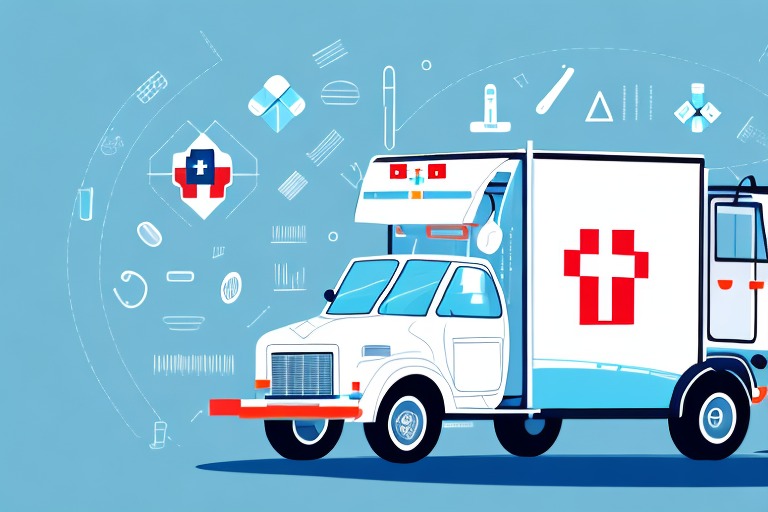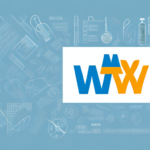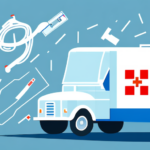Exploring the Benefits of Medical Delivery Service Jobs
Medical delivery service jobs have surged in popularity, playing a pivotal role in the healthcare industry. These positions involve the transportation and delivery of medical supplies, equipment, and pharmaceutical products to clinics, hospitals, and various medical facilities. This article delves into the different facets of this industry, including the types of jobs available, the benefits of working in medical delivery services, and the future prospects of this field.
Understanding Medical Delivery Service Jobs
What Are Medical Delivery Service Jobs?
Medical delivery service jobs encompass the transportation of medical supplies, pharmaceutical products, and other equipment, including medical specimens, from one location to another. These roles are essential for the smooth operation of the healthcare system, ensuring timely and accurate delivery of necessary medical products.
Individuals in these roles typically require a valid driver's license and a clean driving record. Adherence to strict protocols and procedures is paramount to ensure the safety and security of the medical products being transported. Additionally, flexibility in working hours, including weekends and holidays, is often necessary to meet the demands of the healthcare industry.
Types of Medical Delivery Service Jobs
- Pharmaceutical Delivery Drivers
- Medical Courier Drivers
- Medical Equipment Delivery Drivers
- Transportation Managers
- Logistics Coordinators
Some positions require specialized training, such as handling hazardous materials or refrigerated items. Knowledge of medical terminology or experience in a healthcare setting can also be advantageous. Opportunities for advancement into management or administrative roles are often available.
Evolution of the Medical Delivery Service Industry
The medical delivery service industry has a rich history, dating back to the late 19th century when pharmacists personally delivered medications to patients. Over the years, the industry has transformed significantly with advancements in technology and healthcare practices. Today, medical delivery services encompass a broader range of tasks, including the transportation of various medical supplies, equipment, and pharmaceuticals.
Technological innovations such as drone delivery have revolutionized the industry by enabling rapid and efficient delivery, especially in remote or hard-to-reach areas. For instance, companies like Zipline have successfully implemented drone delivery systems to transport blood and vaccines in Rwanda and Ghana, drastically improving response times in emergency situations [Source].
Furthermore, the adoption of temperature-controlled vehicles has enhanced the safe transportation of sensitive medical supplies like vaccines, blood, and organs. These vehicles are equipped with advanced temperature control systems to maintain the efficacy and quality of these critical supplies during transit.
Factors Driving High Demand for Medical Delivery Service Jobs
Aging Population
The global population is aging, with the World Health Organization projecting that by 2030, the number of people aged 60 years and over will reach 1 billion [WHO]. An older population results in increased healthcare needs, thereby elevating the demand for medical delivery services to ensure timely access to necessary medical supplies and medications.
Impact of the COVID-19 Pandemic
The COVID-19 pandemic has significantly heightened the need for medical delivery services. With lockdowns and social distancing measures in place, the necessity for home delivery of medical supplies and medications surged. According to a report by McKinsey, the pandemic accelerated the adoption of delivery services across various sectors, including healthcare [McKinsey].
Rise of Telemedicine
The growth of telemedicine has further fueled the demand for medical delivery services. As more healthcare providers offer virtual consultations, the need for shipping medical supplies and prescriptions directly to patients who cannot visit physical pharmacies or medical facilities has increased. A study by the American Medical Association indicates that telemedicine usage expanded by over 50 times during the pandemic [AMA].
Career Benefits in Medical Delivery Services
For Healthcare Professionals
Healthcare professionals working in medical delivery services enjoy expanded career opportunities and potential for advancement. Engaging in medical delivery allows these professionals to gain valuable experience interacting with patients and healthcare providers. This experience can be instrumental for individuals looking to advance their careers or transition into different areas within the healthcare sector.
Additionally, many medical delivery service roles offer flexible work schedules, accommodating those who need to balance work with other responsibilities such as family or education. This flexibility can also benefit professionals seeking to supplement their income or prefer temporary employment arrangements.
For Non-Medical Workers
Medical delivery services present significant advantages even for non-medical workers. These roles offer opportunities for personal and professional growth, competitive salaries, flexible schedules, and the chance to engage in work that has a meaningful impact on society.
Non-medical workers can develop new skills, including understanding medical terminology and patient care, which can be valuable for future career opportunities or personal development. Moreover, the sense of fulfillment derived from contributing to the healthcare industry can be substantial, as delivering medical supplies directly impacts patient care and community health.
Skills and Requirements for Success
To thrive in medical delivery service jobs, certain skills and abilities are essential:
- Strong organizational and time-management skills
- Experience with logistics and supply chain management
- Ability to handle sensitive medical information and materials
- Excellent communication and interpersonal skills
- Attention to detail
- Adaptability and problem-solving abilities
Attention to detail is critical to ensure that the correct medical products are delivered accurately and on time, as errors can have serious consequences. Adaptability is equally important, as delivery professionals often need to adjust routes or schedules in response to unforeseen circumstances.
Salary and Job Growth Opportunities
Medical delivery service jobs offer competitive salaries and promising job growth. According to the U.S. Bureau of Labor Statistics (BLS), the median annual wage for delivery drivers was approximately $34,000 in 2022 [BLS]. Specialized roles, such as transportation managers, can earn significantly higher salaries, with some positions offering salaries up to $100,000 per year.
The BLS also projects a steady growth rate for delivery and courier services, with an estimated increase of 7% from 2021 to 2031, which is faster than the average for all occupations [BLS]. This growth is driven by the ongoing expansion of e-commerce and the healthcare industry's increasing reliance on delivery services.
Challenges in the Medical Delivery Service Industry and Solutions
Workers in the medical delivery service industry face several challenges, including:
Long Working Hours and Tight Deadlines
Delivery professionals often work long hours to meet tight deadlines, which can lead to burnout and job dissatisfaction. To address this, companies can implement schedule optimization tools and provide adequate staffing to distribute workloads more effectively.
Risk of Exposure to Infectious Diseases
Especially highlighted during the COVID-19 pandemic, delivery workers are at risk of exposure to infectious diseases. Providing personal protective equipment (PPE) and enforcing strict safety protocols are essential measures to mitigate these risks.
Communication and Language Barriers
Delivering to diverse populations may involve language barriers that hinder effective communication. Companies can offer language training to their employees or employ bilingual staff to ensure clear and accurate communication with all patients.
Challenging Delivery Conditions
Delivering to remote or rural areas can present logistical challenges, including difficult terrain and adverse weather conditions. Investing in advanced delivery technologies, such as drones and GPS tracking, can enhance efficiency and reliability in these scenarios.
The Role of Technology in the Future of Medical Delivery Service Jobs
Technology continues to transform the medical delivery service industry, enhancing efficiency and expanding capabilities. Advanced fleet management systems and GPS software optimize delivery routes, reducing transit times and operational costs. Moreover, the integration of drones enables rapid delivery of medical supplies to hard-to-reach locations, improving response times in emergencies.
Looking ahead, the advent of autonomous vehicles promises to further revolutionize the industry by reducing the reliance on human drivers and minimizing the risk of human error. Additionally, blockchain technology can be utilized for secure and transparent tracking of medical shipments, ensuring the integrity and traceability of sensitive medical products.
Future Outlook: Growth and Importance of Medical Delivery Services
The future of medical delivery services is poised for substantial growth, driven by demographic trends, technological advancements, and evolving healthcare practices. The aging global population and the increasing prevalence of chronic diseases will elevate the demand for timely and reliable medical deliveries.
Technological innovations, such as drones and autonomous vehicles, will further enhance the efficiency and reach of medical delivery services. Additionally, the continued expansion of telemedicine and e-commerce will sustain the demand for medical delivery professionals.
Overall, medical delivery service jobs are integral to the healthcare ecosystem, offering significant opportunities for personal and professional growth, competitive compensation, and a positive impact on patient care and community health.






















